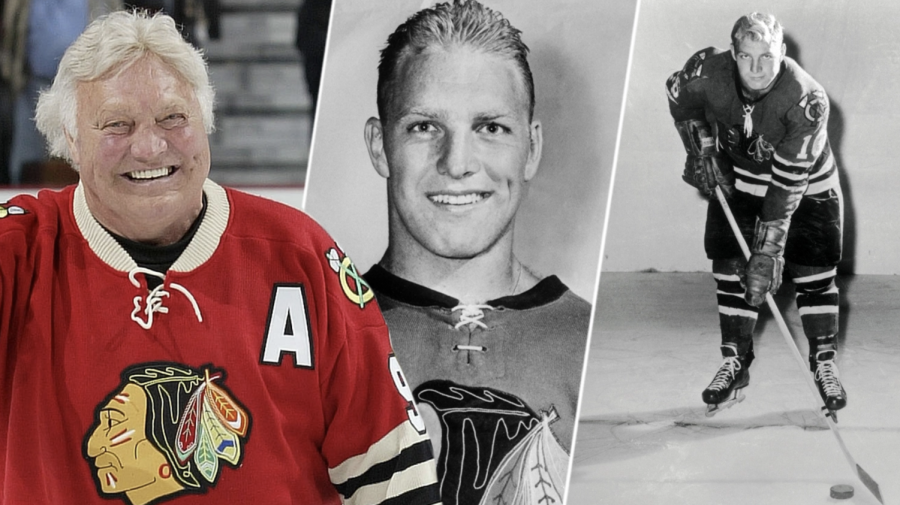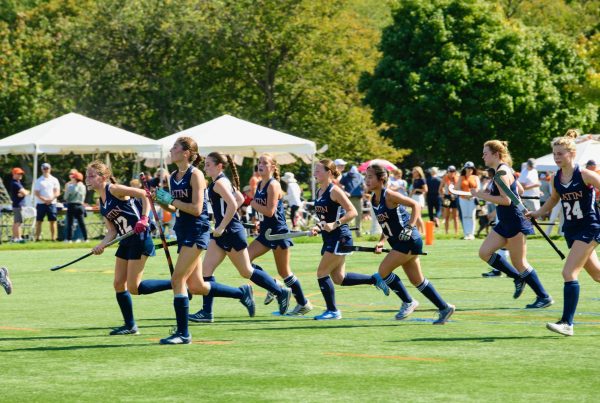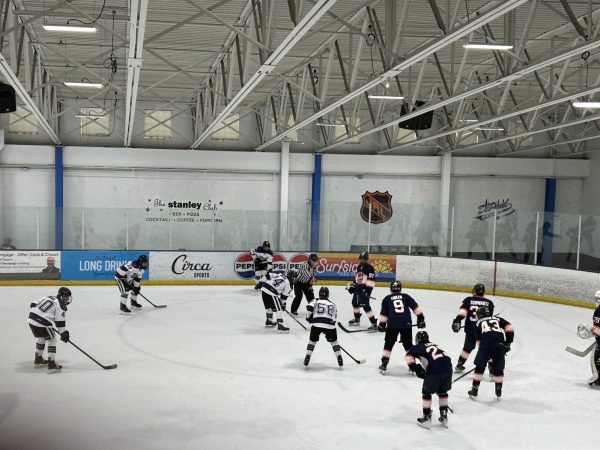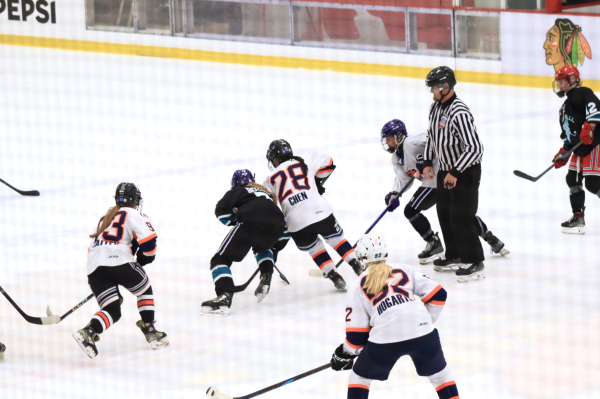Bobby Hull and His Twisted Legacy
Bobby Hull throughout his hockey career and beyond.
Known as the “Golden Jet” for his striking blond hair, lightning-fast skating, end-to-end rushes, and unmatched scoring ability, Bobby Hull was once seen as the National Hockey League’s golden boy. But the accomplishments and honors of Hull, who died in January at the age of 84, are instantly diminished by domestic abuse allegations from two of his three wives and his offensive commentary regarding the Holocaust and the Black population within the United States.
With his connections to Chicago and his lengthy career as a Blackhawk from 1957 until 1972, Hull is a popular face for hockey fans throughout the state. At Latin, both boys and girls hockey programs participate in the Blackhawks Rival Series at Fifth Third Arena, also known as the Chicago Blackhawks Community Ice Rink, or the Blackhawks’ practice rink. Therefore, Latin has a loose connection to the NHL team. Athletes on both of the Roman Hockey squads—a program that includes students from a number of Chicago high schools—knew Bobby Hull’s name but were unaware of his tragic past.
Zoe Larsen, a junior and member of the Chicago Romans Hockey Club said, “I feel that, because until today I did not know what he had done and said, I do not think that I had an informed and thoughtful opinion on Bobby Hull.”
Sami Aday, Upper School lobby receptionist and dedicated sports fan, said, “I think every player should be held accountable for something they said or did or even associated with if it’s a former player or current player. But at the same time, we should recognize the good a player has done for the sport.”
Similarly, senior and member of the Romans Hockey Club Trent Glimp said, “I don’t think that Bobby Hull deserves a huge ceremony about how great his career was, but I also don’t think he should now be criticized for the things he did away from hockey. He is dead, and his friends and family are grieving. Yes, he made comments which were and are wrong. Yes, he was abusive. Yes, he assaulted a cop. But that still doesn’t provide a reason, at least in my mind, to ‘speak ill of the dead.’”
Senior Lizzie Lucas, founder of SportStatNetwork and NHL fan, said, “if the NHL were to recognize his accomplishments, they should also make a statement against his personal life to show others that just because someone is very good at their sport doesn’t mean the things he did were okay.”
Balancing career accolades with an acknowledgment of Hull’s misconduct has created a whirlwind of problems for the NHL. On their website, Hull is currently praised, with headlines including “Bobby Hull honored by legendary goalies for intimidating shot, presence” and “Bobby Hull dies at 84, legendary Blackhawks goal-scorer, Cup champion.” In short, the NHL has limited their reporting on his personal life, mainly highlighting his successful hockey career.
Trent said, “It’s necessary to look at the time period [when reflecting on his career]. Bobby Hull played between five and six decades ago, so that’s why he wasn’t punished for what he did. If he played today and did the same things, I can guarantee he would be banned from the NHL.”
Other nationally recognized sports organizations such as Major League Baseball, the National Basketball Association, and the National Football League have put an emphasis on accountability in recent years. For example, if an athlete were to commit a crime, they almost always get removed from their team, if not banned from their sport’s league.
As a lifelong hockey player, Trent mentioned that “the same thing happens in youth hockey. I know there are rules surrounding ‘out-of-hockey’ issues in the rule books at every level: hockey team, league, state association, and national association.”
Zoe said, “[Hull] was a person of great influence and talent, and to use that fame and influence to spread hate should not be rewarded.”




















































